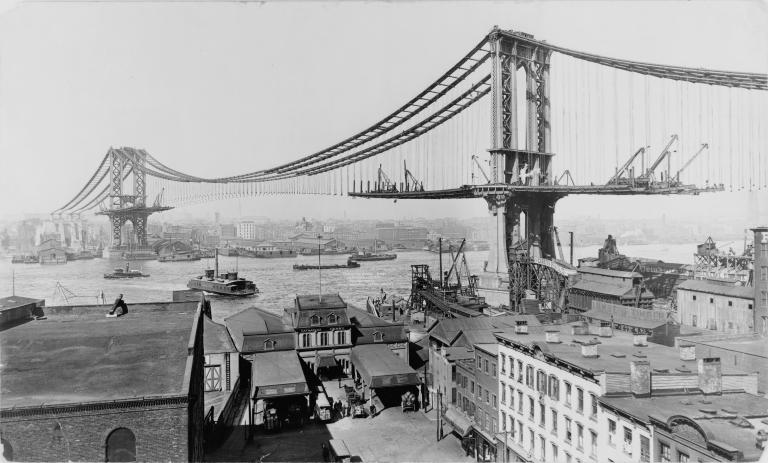Stuck in The Neighborhood: After a year in New York City, I’m somewhat surprised to see how people settle into a fairly small orbit, particularly if they work close to where they live. I expected to hear of this from lifelong New Yorkers who never venture from the neighborhood but have been surprised to find the same phenomenon among upwardly mobile transplants. This stay-in-your-lane mentality, a tendency towards creating silos of convenience or comfort, is a human tendency that feeds into the vocational divide.
The Vocational Divide is the disconnect many of us live between our faith and our work. Institutional silos fuel the compartmentalization: a divide between those who think and guide us in spiritual things and those who think and guide us in our careers. This gap is personal, an awkwardness between pastors and accomplished careerists in their churches.
Note: Accomplished careerists are those who spend the vast majority of their time at work, and who have achieved notable success and or stability in the context of their paid work.
In order to bridge the divide, in order to get to a place where spiritual leaders provide validation and wisdom for the lives people live at work, 2 things need to happen.
- (As discussed in recent posts) Leaders are both sides must abandon their competing narratives of sacrifice and superiority.
- Leaders on both sides need to awaken to our common pain.
Building a Bridge With Common Pain
- The Weight of Responsibility: When you run a company, department or church, every decision impacts other people, sometimes thousands. Pastors and Careerist feel the weight of responsibility for the lives of others. They share the loneliness of leadership.
- The Fear of Being Used: My business friends are wary of being used as ATM machines for all sorts of mediocre (and bad) business and ministry ideas. My pastor friends know what it’s like to be the friend, counselor, or wedding chaplain of last resort—people only want us when they are in a mess and can’t find anyone else. Careerists and Pastors share the fear of being used.
- The Journey of an Outsider—from misunderstood to demonized. If you want to be treated like a strange anomaly, tell someone you’re a pastor. Reveal you’re successful in your career and you expect to be treated as a demonized 1%er. Pastors are assumed to be backward, manipulative, controlling, and repressive. Successful careerists are assumed to be dishonest, greedy, and uncaring. Careerists and pastors share the journey of outsiders.
- Victims of economic, cultural and internal political shifts. Many of my business friends in NYC are still reeling from the crash of 2008. The meltdown altered career trajectories and blew up dreams. Many of my pastor friends are struggling to survive in a culture that decreasingly values all forms of institutional engagement and loyalty. Careerists and pastors share experiences of having the cultural ground move under their feet and finding themselves more insecure than they ever imagined.
- Angst over the impact of our lives. In the church world, we have our rock stars, the pastor’s with books and megachurches. We know they have made an impact. In the career world, each industry has its celebrity achievers. Some of who are even outspoken about their faith. These “Christian winners” clearly have an impact. But the percentage of players in either sphere who are at the top is small. This means most careerists and most pastors share a sense of angst over the impact of their lives.
More in Common Than We Think
The church leader and the individual invested in their career has more in common than we think. These points of commonality build connections between silos and bridge the vocational divide.
Faith and Work Resources: I keep a current and curated list of great resources related to the faith and work conversation follow this link: Resources on Faith and Work
About the Author: Dr. Chip Roper writes Marketplace Faith from New York City, where he is the director of Marketplace Engagement at the New York City Leadership Center. Chip is convinced that a central piece of God’s plan for any city or community is the work that people do each day. You can learn more about him here. Chip is available for speaking, consulting, and coaching engagements. Inquire via email: [email protected].
Pic: https://upload.wikimedia.org/wikipedia/commons/1/1c/Manhattan_Bridge_Construction_1909.jpg













